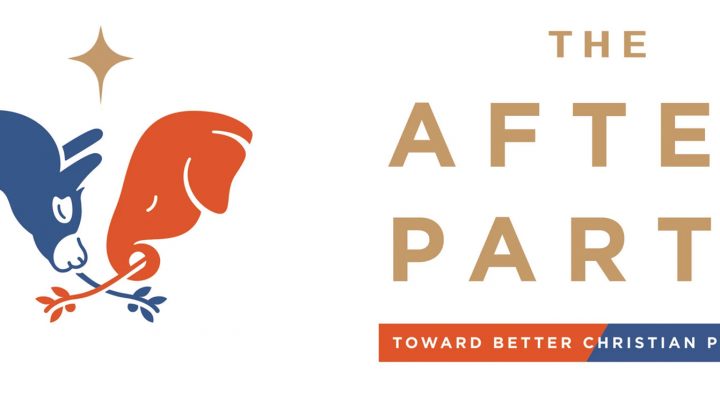Christians who worry about politics encroaching on faith can do more than cry or complain. They can study “The After Party,” a video/curriculum/book combo designed to help believers come up with a “better Christian politics.”
Public theologians Curtis Chang, David French and Russell Moore want Christians to reframe how they think about their spiritual and political identities in preparation for the final six months of another wild and divisive election season with:
- A free six-part “The After Party” video-based lesson series available on the website for Chang’s nonprofit, Redeemimg Babel
- A just-published companion book written with Nancy French, who has chronicled her own spiritual/political journey away from the rabid right.

Curtis Chang
Chang, a consulting faculty member of Duke Divinity School and a senior fellow at Fuller Theological Seminary, says Christians have lost their way in how they link faith and politics.
A better way may be found answering Christ’s call to be salt and light and getting to work on “the hard work of engaging across differences, reframing political identity in light of the gospel’s promises” and putting love for neighbor over passion for ideology, he contends.
“If you want to move toward better Christian politics, you don’t have to uproot your life or make radical changes in your social circle,” Chang says. “The starting point of change resides in your own mind, with the story you are telling yourself about politics. You can change your politics by changing your story.”
For example, some of the most politically active evangelicals tell themselves the story that all those things Jesus said about loving your neighbor and turning the other cheek don’t really apply to political opponents in today’s culture war battles.
“The After Party” confronts that narrative by telling the story of the divisive and politically charged climate of Jesus’ day, when Jews persevered under the abusive power of Rome.
“If Jesus meant for his practices to apply under brutal foreign occupation, how could any of us today plausibly argue that our current political stakes are so high that we deserve an exemption?” viewers are told in one video.
Chang says Christians should be known first as disciples of Jesus, but many have prioritized “three sub-Christian political identities over their first love.”
- Combatants are those with their fists up to the world, and they currently enjoy a level of influence that far exceeds their numbers. Their fighting spirit is untempered by humility or care for what others value.
- The exhausted are the combatant’s polar opposite: they fear no one can figure out a better approach to politics and have given up that quest. There are many of these people, giving credence to the term, “the exhausted majority.” But they have little political impact because “you cannot exert influence when you are hiding in the bushes.”
- Cynics are sure of one thing: everything’s hopeless. At times, their disengagement makes them appear confident and sophisticated, but their long-term influence is a corrosive mix of pride and despair.
The authors urge followers of Jesus to engage the world as agents of reconciliation extending God’s grace to everyone, included political opponents, even if they’re in your church: “Christian politics is meant to stand as a humble sign pointing toward God’s ultimate reconciliation of all things. … You just need to make sure you are pointing toward God’s reconciliation wherever you are positioned, especially in your relationships.”
The series also teaches: “A sign is also an intrinsic expression of hope: it declares that your desired destination indeed exists farther down the road.”


